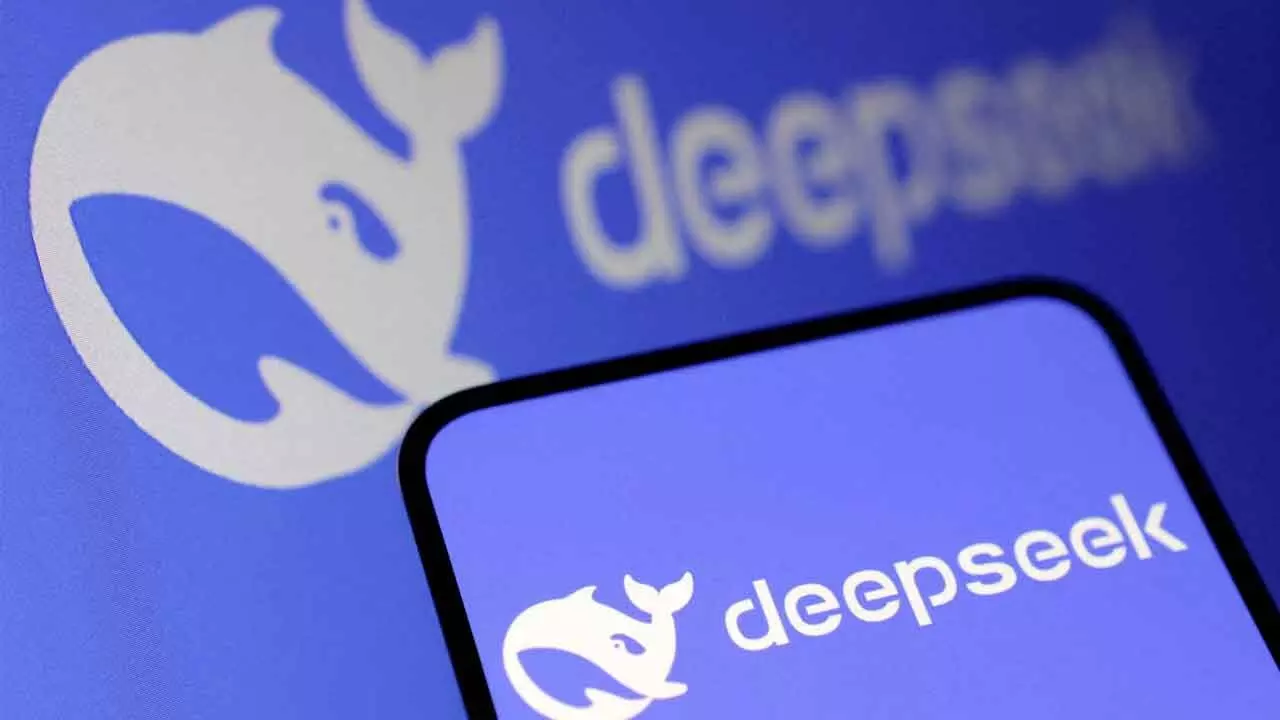DeepSeek Under Fire: Germany Demands Apple and Google Block Chinese AI App Over Data Transfer Concerns
Germany's data protection watchdog is escalating pressure on Chinese AI app DeepSeek, urging tech giants Apple and Google to block it from their app stores. The move stems from concerns that DeepSeek illegally transfers German user data to China, raising significant questions about data privacy and the future of Chinese AI in Europe.
DeepSeek Under Fire: Germany Demands Apple and Google Block Chinese AI App Over Data Transfer Concerns

The digital landscape is heating up in Europe as a prominent German data protection authority has called on tech titans Apple and Google to consider an unprecedented move: blocking the Chinese artificial intelligence application, DeepSeek, from their app stores. This bold request comes amid mounting concerns that DeepSeek is unlawfully transmitting German user data to servers in China, a practice that directly clashes with the European Union's stringent data privacy regulations.
Meike Kamp, Berlin's data protection commissioner, issued a stern statement on Friday, asserting that DeepSeek's data transfer practices are "unlawful." The core of the issue, according to Kamp, is DeepSeek's inability to provide convincing evidence that German user data enjoys a level of protection in China equivalent to that guaranteed under the EU's General Data Protection Regulation (GDPR). The GDPR strictly prohibits data transfers outside the EU unless the recipient country offers comparable safeguards, a standard that Chinese authorities' extensive access rights to personal data held by Chinese companies appear to undermine.
DeepSeek, a Chinese firm that made headlines earlier this year with its claim of developing a cost-effective AI model using less advanced Nvidia chips, also operates a global chatbot AI app. This application has garnered millions of downloads worldwide, and with that popularity has come increasing scrutiny over its data handling practices.
The German authority's intervention could pave the way for a broader, EU-wide ban on the DeepSeek app, according to legal experts. Matt Holman, a specialist AI and data lawyer at Cripps, noted that the data protection rules applied in Germany are largely consistent across the EU and even in the UK, making a collective response a distinct possibility. However, he cautioned that such a widespread ban would require consensus among the bloc's regulators. Should Apple and Google comply with the German request and remove the app, it would effectively serve as a de facto EU-wide ban, severely limiting DeepSeek's market access in European territories.
"The implications for DeepSeek could be, unsurprisingly, quite stark," Holman stated. "Access to German citizens’ data will be curtailed. In short order, this could expand to the remainder of the EU if other national regulators follow suit, meaning EU — and potentially UK — markets will be curtailed if Apple and Google disable the app."
This isn't DeepSeek's first run-in with European regulators. In February, Italian data protection authorities took action, ordering DeepSeek to block its app in the country. Similarly, Irish authorities initiated an inquiry into DeepSeek's data processing activities in January. These escalating regulatory pressures highlight a growing global apprehension about the security and privacy implications of AI applications developed by companies operating under different data governance frameworks.
The Berlin data watchdog has officially informed Apple and Google of the alleged violations, expecting a "timely review" from the US tech giants on whether to remove the app from their respective platforms. While it remains uncertain how Apple and Google will respond, the decisions made in the coming weeks will undoubtedly set a significant precedent for the future of cross-border data flows and the global reach of AI technologies.

